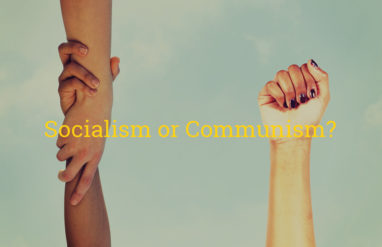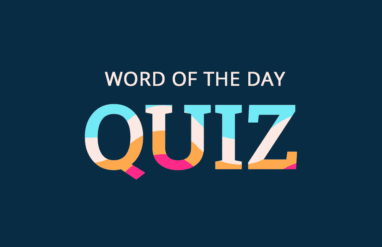Nazi vs. Fascist: Is There Really A Difference?
Linguists have a bunch of fancy words to describe language evolution. When a word’s meaning becomes more negative over time, it’s referred to as pejoration. The opposite–when a meaning is viewed in a more positive light over time–is called melioration.
Word evolution like this is pretty common; some words even manage to go through both pejoration and melioration. Two such words that have managed to see-saw like this are Nazi and fascist.
Nazi vs. fascist
Both of these words began as shorthand descriptors referring to specific political parties before they became playfully irreverent epithets.
Nazi is a shortened form of Nationalsozialist (the National Socialist German Worker Party), and fascist originally refers to Italy’s Partito Nazionale Fascista. (From the Italian fascio, meaning “group, association,” or literally, “bundle.”) The actions of these groups during WWII caused their names to become synonymous with “ruthless authoritarianism and unjust brutality.”
Pejoration and melioration
The defeat of the Axis Powers, predictably, led to a general decline in the popularity of Nazis and fascists worldwide. The terms themselves became pejoratives; thus, the terms’ meanings became negative over time.
But the reverse movement, melioration, wasn’t too far behind. Fascist’s rehabilitation into the vernacular began much sooner than Nazis.
The Oxford English Dictionary records metaphorical use of this word as early as 1945 to describe “someone intolerant or unduly coercive.” The term Nazi would follow suit, re-entering the common lexicon by the 1980s as shorthand for “people who are unbendingly and unfeelingly strict about something.”
Creeping back into the lexicon
Over the course of recent decades, Nazi (often spelled with a lowercase n) has worked its way into everyday speech. We have fitness nazis, fashion nazis, or even–as with Seinfeld’s famous example–soup nazis. Grammar nazi dates back to at least 1991, when a member of a Usenet group entered the message “I’m a card carrying member of the Spelling and Grammar Nazis of America.”
It must be said that many people find the everyday use of these words (and especially that of Nazi) to be awkward at best and extremely insensitive at worst. The historical weight of those terms is so heavy that the New York Times reported in 2014 that the Israeli parliament was working on a bill to make calling someone a Nazi a crime. The offender could be jailed for up to six months, and fined as much as $29,000. So yes: sort of a big deal.
Regardless of how strict or unyielding someone might seem, you might want to think twice before hurling the term fascist or Nazi at them. Then again, if you encounter an actual fascist or Nazi, let the insults fly.
RELATED POSTS
YOU MIGHT ALSO LIKE
A Glimpse Into The Differences Among US, UK, And Aussie English
Just how many kinds of English are there?
'사회학' 카테고리의 다른 글
| HITLER 유서 (0) | 2019.02.13 |
|---|---|
| 트로츠키 (0) | 2019.02.10 |
| 로베르 프랑수아 다미앵 (0) | 2019.01.24 |
| '석궁사건(석궁시위)'의 정의 (0) | 2018.11.27 |
| [스크랩] 존 F 케네디 대통령 <취임 연설> (0) | 2018.11.17 |














